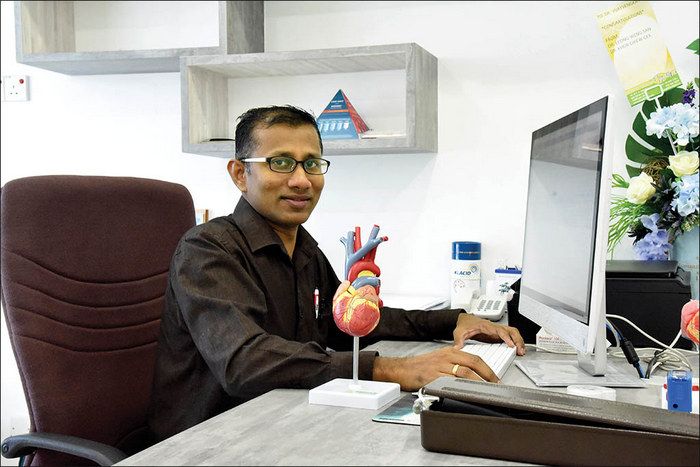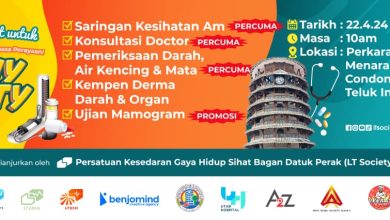

As the title suggests, this is the admonition of Dr Vijay Vengkat, Consultant Cardiologist at KPJ Ipoh Specialist Hospital, on minimising the risk of a heart attack.
“Almost 30% of heart attack victims never make it to the hospital,’’ he emphasised, “which a timely heart screening may have prevented.”
As an interventional cardiologist, coming from Hospital Bainun Ipoh where he worked from 2006 with the last two years as Head of Cardiology, till joining KPJ Ipoh Specialist in October last year, Dr Vengkat is very keen on preventing heart events rather than intervening in them.
After graduating with an MBBS from the University of Malaya followed by an MRCP from the UK, Dr Vengkat polished his cardiology skills with long work stints in Serdang, Sabah and IJN the National Heart Institute before joining Hospital Bainun.
The risk factors are high in Malaysia with people getting diabetes younger and younger resulting in 1 in 5 people being diabetic and 47% have high cholesterol. Add to that, smoking, hypertension and the obesity epidemic, and the statistics here for heart attacks are poor compared to other countries. For example, the average age for a heart attack in Malaysia is 58 compared to 65 in Thailand, 68 in Canada and even later for Singapore.
So screening is advisable especially if there is a family history of heart attacks or strokes. Screening can be as simple as doing an ECG which can determine if a patient is having a heart attack or had a previous one but it cannot detect blockages in the arteries. An echocardiogram can detect any weaknesses in the heart and whether there are any valve problems or a hole in the heart.
A further diagnostic procedure is an angiogram where a dye is injected and scans are taken of the heart and its surrounding arteries. If there is more than a 70% blockage in an artery, then serious intervention is required such as balloon angioplasty where a catheter is threaded up into the blocked artery and the block is gently broken up by the balloon which is inflated at the site. This will improve blood flow. Whether or not they need to put in a stent (a mesh tube to keep the artery opened) will be decided by the cardiologist at the time and depending on the location of the blockage.
Often times, if the blockage is less than 50% Dr Vengkat would prescribe medication to gradually dissolve the block and improve overall blood flow.
For obese people, Dr Vengkat recommends reducing weight and if travelling long distances by plane on journeys of more than 10 hours or longer, to wear compression socks or take blood thinners during the flight. Deep Vein Thrombosis or DVT for short, happens more frequently when there is little or no movement while flying and the clot that forms in the legs may travel to the lungs and cause a pulmonary embolism which can be fatal.
Dr Vengkat recommends that one should do a screening by the time one reaches 50 or earlier if you have chest pains, breathlessness or even symptoms that resemble heartburn.
Consultant Cardiologist MBBS (UM) MRCP (UK) KPJ Ipoh Specialist Hospital, Clinic Suite 2-22 26 Jalan Raja Dihilir, 30350 Ipoh. Tel: 05 240 8777 Clinic: 05 245 1388

